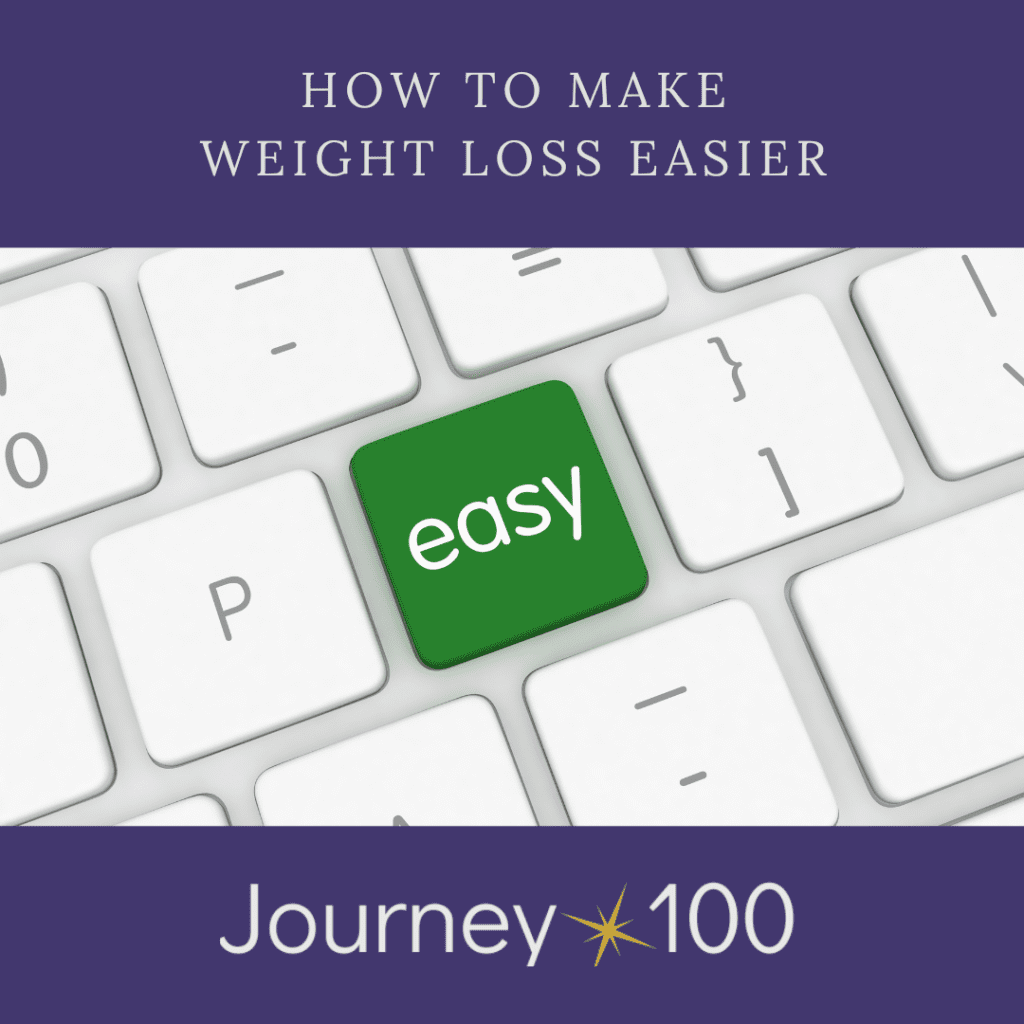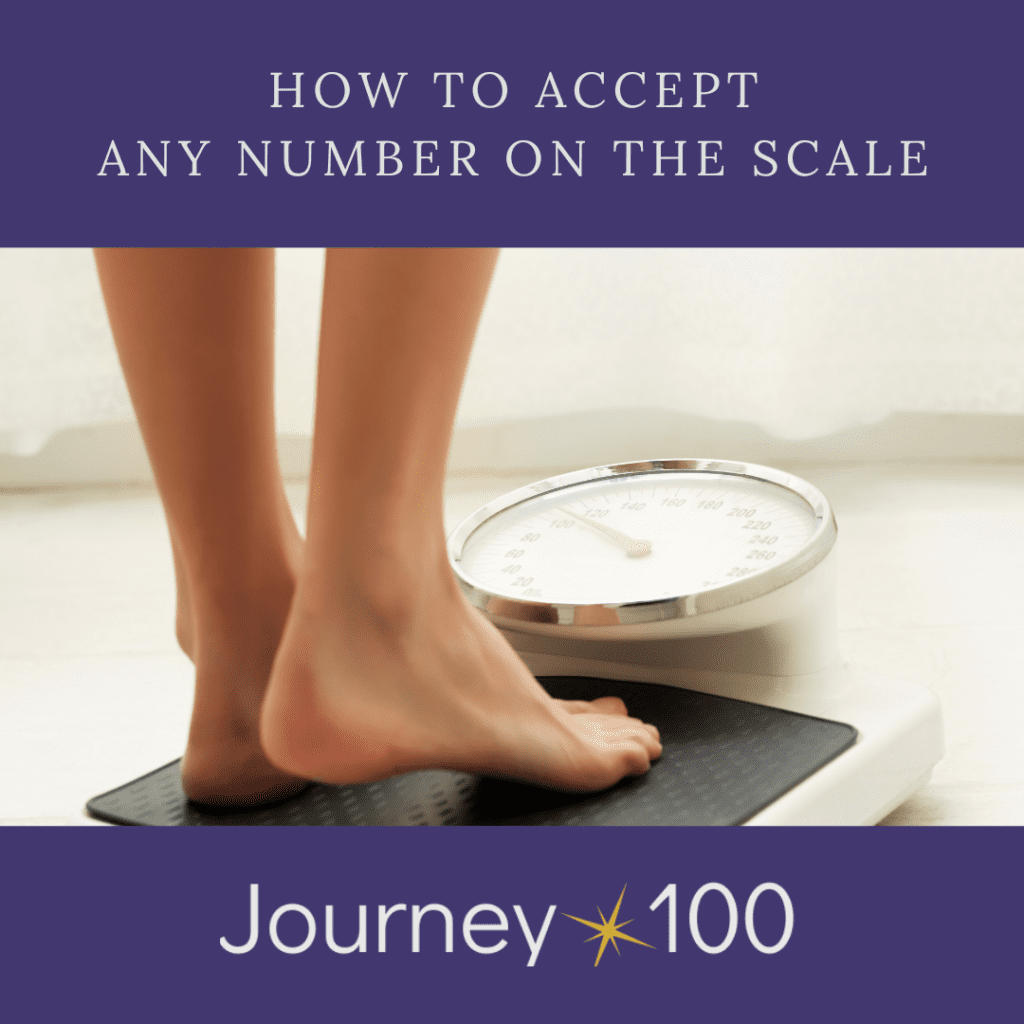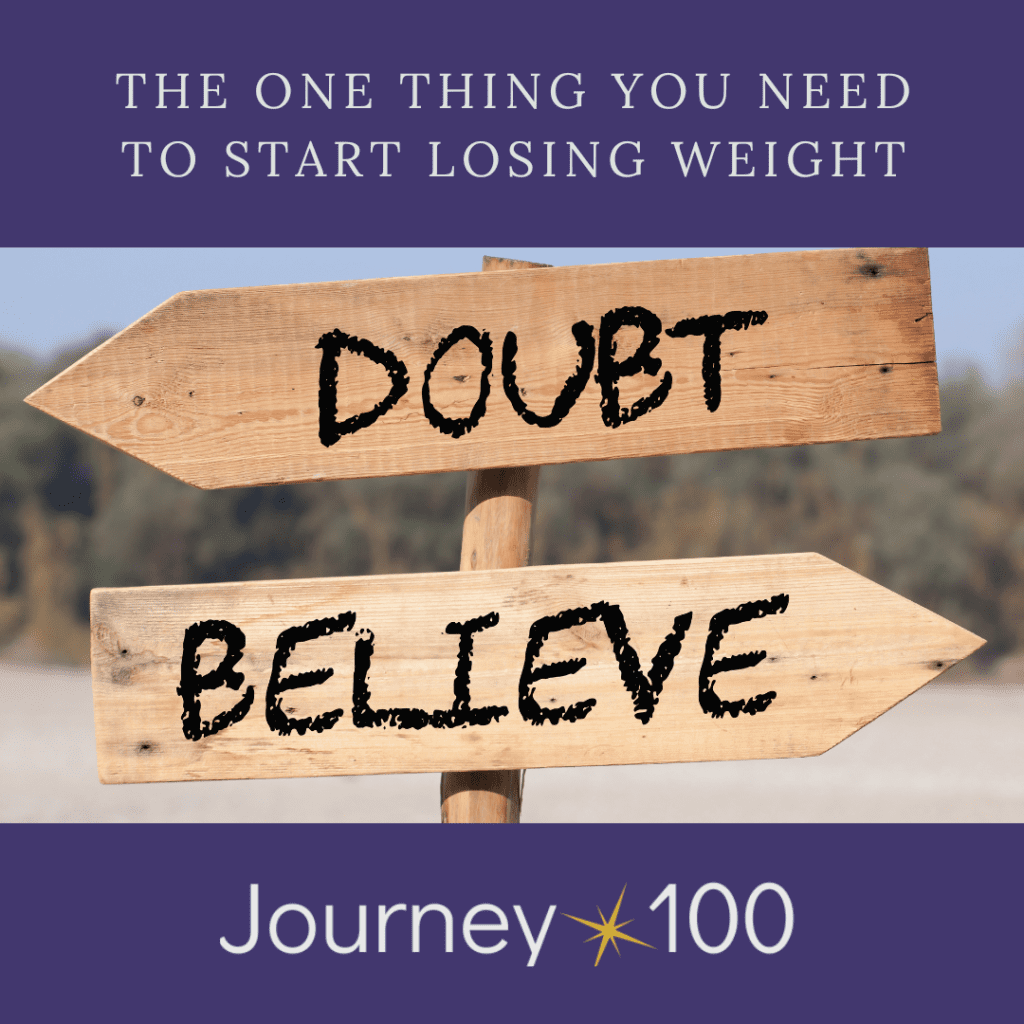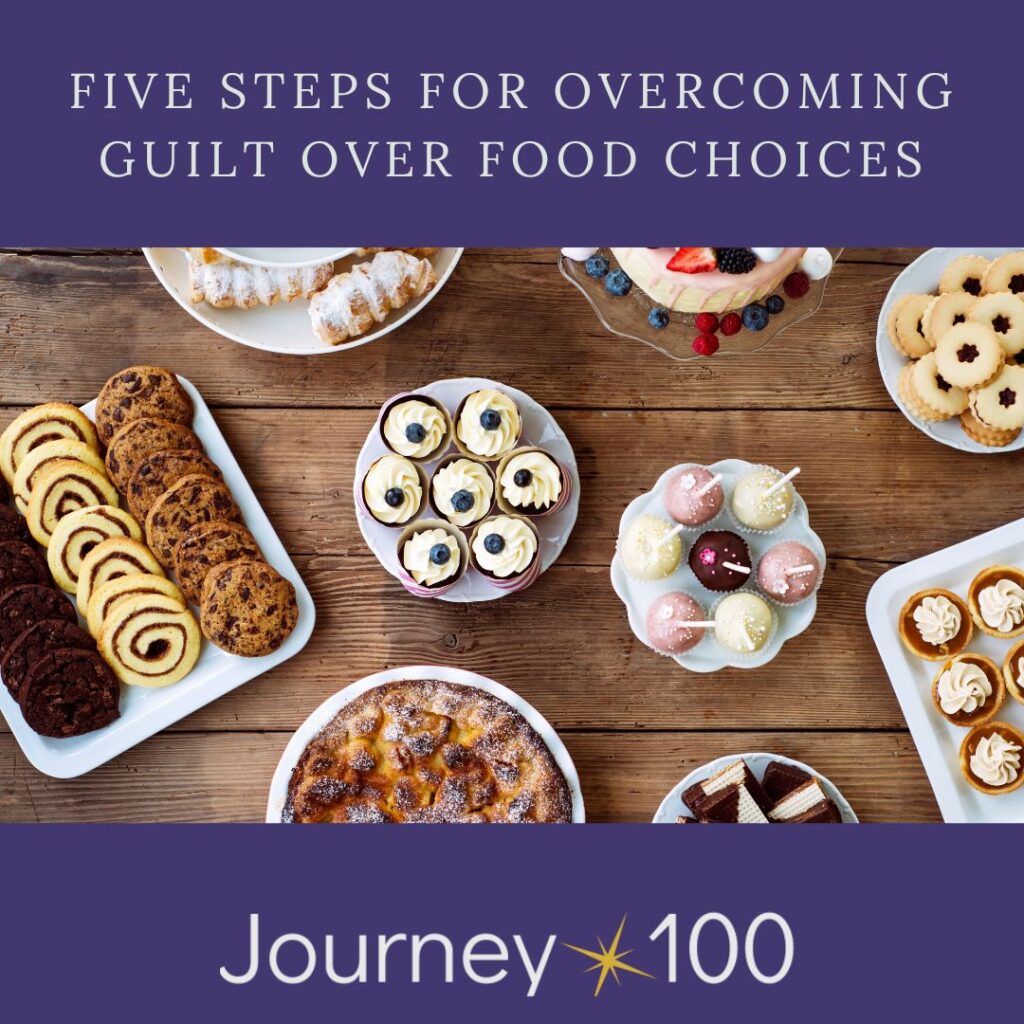How to end weight loss misery

Does weight loss feel miserable? For many of us, the answer is a resounding YES! Keep reading for how to end weight loss misery. Many of us approach weight loss with a list of “rules” that make it feel like yet another chore—something we have to do. But what if I told you there’s a way to make this journey feel lighter, more enjoyable, and even empowering? It all starts with one simple mindset shift: replacing “I have to” with “I get to.” Whenever I was on a diet, everything felt like a burden: “I have to skip dessert.” “I have to find time to exercise.” “I have to cook something healthy.” Each “have to” made me feel resentful, like I was punishing myself for not being good enough. But then, I decided to shift my thinking. What if these weren’t obligations? What if they were opportunities? Suddenly, “I have to” became: “I get to nourish my body with wholesome food.” “I get to move and strengthen my body in ways that feel good.” “I get to choose habits that support my energy and health.” This small change made a huge difference. Gratitude turned my weight loss journey into an act of self-love rather than just another to-do list item. When you approach your choices with gratitude, everything shifts: Empowerment, Not Obligation: You’re no longer forcing yourself to follow rules. You’re choosing actions that care for your body and health. Enjoyment Instead of Resentment: Gratitude reframes healthy habits as privileges rather than punishments. Long-Term Fulfillment: Instead of chasing short-term results, you’ll start appreciating the process itself—how good it feels to take care of you. Ways to Use Gratitude in Your Day Here are some simple ways to weave gratitude into your weight loss journey: Start Your Day with Gratitude As you write your daily plan, write a few things you are grateful for from the previous day. This is a great time to take notice of the non-scale victories. Reframe Tough Moments When you’re tempted to skip a healthy choice or feel like giving up, reframe the moment: “I get to prepare a meal that fuels me and supports my energy.” “I get to pause and choose what’s best for me right now.” “I get to choose progress.” Celebrate What You Have Focus on what your body can do right now, not just what you want it to be. “I’m thankful for my legs that carry me, my heart that beats, and the strength I’m building with every step.” “I’m thankful for the breath in my lungs.” “I’m thankful to have a body to experience this world in.” By shifting from “have to” to “get to,” you’re no longer approaching your journey with a sense of dread. Instead, you’re celebrating your ability to care for yourself and make positive choices. This mindset makes the process more enjoyable and helps you stay consistent because you want to do these things—not because you’re forcing yourself to. The beauty of gratitude is that it reminds you how much you’re already capable of and how far you’ve come. It’s a way of saying, “I’m doing this because I deserve to feel good, inside and out.” I hope this small mindset shift gives you a new perspective and renewed hope for your weight loss journey. You don’t have to do anything—you get to take steps that nurture and love the amazing woman you are. Your Coach, Andrea
How to stay on track over the weekends

For so many of my clients, weight loss seems to be easier Monday through Friday. There is structure and routine. During the week, it is easy to be focused but once the weekend comes, routine goes out the window! Here are five ways you can stay on track over the weekends: Make a plan While Saturday and Sunday might look different from the workweek, you probably have a general routine. Maybe you don’t wake up as early but you still get up around the same time every weekend. If you’re like me, you have kids that have sports the same time each weekend too. If you take five minutes at the start of each weekend day and brainstorm your commitments, where you will be for each meal time, and available options for food, you’ll be off to a good start in making a reasonable plan for yourself. Another important part to remember is making sure you stay hydrated over the weekend so make a plan for that too. Will you carry a water bottle around with you? Will you fill multiple water bottles and stash them around the house to remind you to drink water? Remembering to stay hydrated over the weekend will help you feel your best, have more energy and prevent snacking due to faux hunger (thirst). Anticipate the unexpected Weekends are more flexible and sometimes spur of the moment changes happen. That’s OK. You can be spontaneous and still make progress towards your weight loss goal. A spontaneous trip for ice cream doesn’t mean you have to order the largest sundae with extra chocolate fudge and whipped cream. In fact, a spontaneous trip for ice cream doesn’t actually mean you have to have ice cream at all. My 90 pound weight loss definitely included ice cream but sometimes it also included just loving the joy on my kid’s faces and being present in the moment without having any ice cream. Think about the past few months, what came up over the weekend that you threw you off your weight loss game? Make a plan for how you would ideally handle that if it came up again. Chances are those same challenges will present themselves again in the future. When you mentally rehearse for them, you’ve given yourself the instructions on how you want to handle it so you are better equipped for next time. Create a back on track plan Maybe you went face down into a pepperoni pizza and didn’t come back up until it was all gone. Maybe you’re feeling like you messed it all up and so you might as well eat whatever you want for the rest of the weekend. But hold on! Getting back on track is as much of an option as throwing in the towel is. You are a human being and sometimes you are going to make choices you wish you hadn’t. That’s OK. But don’t dwell there. Create a plan for yourself that helps you get back on track quickly. For me, I love to drink a glass of water and then go for a 15-minute walk. The hydration and moving my body really help to clear my mind. Plus it is two quick wins that I can feel good about! To create your back on track plan, think of one or two things you can do no matter where you are to help get quick win and get your head back in the game. Think something new So many of my clients like to say that the weekends are just harder. But says who? Sometimes we are just committed to the idea that they are harder simply because that’s what we always believed. How could they actually be easier? On the weekends, you may not have the structure and routine of the week but you might have a lot more time to workout, make a food plan or eat more slowly and enjoy your meals. Asking yourself how the weekends can be easier opens your mind to find more evidence that it actually IS easier. Encourage yourself to find ways that losing weight is actually easier over the weekends. Be patient with yourself If weekends have been a struggle for you, please be patient with yourself. Like learning anything new, these things take time. You won’t miraculously start going through your weekends flawlessly. You might still forget to drink water, make a food plan or move your body. That’s OK. The goal is progress, not perfection. If you do one thing better than the weekend before, cheer yourself on! Yay you! Then build on that winning momentum the next weekend. When you feel like you are winning, you keep trying. When you feel like you are losing, you quit. Look for your wins. Keep trying. And eventually you will learn to stay on track over the weekends and meet your weight loss goal. Your Coach, Andrea
How to make weight loss easier

Who wants weight loss to feel easier? All of us. When you think of weight loss, do you envision calorie counting and working out for hours at a time? Maybe it’s cleaning out the pantry and swearing off your favorite foods? For so many of us, weight loss is a nasty list of to-do’s that feels hard. And when weight loss feels hard we convince ourselves that we need something magical like motivation or a special Monday to get started on it. But weight loss doesn’t have to be hard. Weight loss can feel a whole lot easier in just a few steps. Quit calling it hard Weight loss will feel infinitely easier if you stop calling it hard. Now before you write this off as ineffective, hear me out. Your brain has an amazing thing call the Reticular Activating System (RAS). The RAS filters the information that comes through our brain as important or unimportant. So in a busy restaurant, it filters out all the conversations around you until you hear someone shout your name, then you turn and pay attention. The RAS is tuned into your name as an important piece of information so it can pick it out of a noisy restaurant. When you tell yourself over and over that weight loss is so hard, your RAS takes that as important information and goes to look for the supporting evidence that losing weight is hard. For instance, it will key in on how much you sweat during a workout or how deprived you feel when you can’t have a brownie. You think weight loss is hard and your RAS finds all of the evidence of hard for you. If you quit saying weight loss is hard, your RAS will stop looking for all the evidence that weight loss is hard. Start calling it easy The next step in making weight loss feel easier is to call it easy. Hold on…I can hear you now….. but it’s not easy! Ok. But are some parts of it easy? Be sure to point that out to yourself. Even if it is just filling up your water bottle, remind yourself that was easy. Driving to the gym? That was easy. Maybe you completed a workout and it didn’t kill you like you thought it would, tell yourself “That was easier than I thought it would be.” Give your RAS the challenge of finding easy things about weight loss and pretty soon you’ll be feeling that weight loss doesn’t feel as hard as it did before. Make it enjoyable Typically the things you enjoy in life are things you want to do more often. Enjoyable tasks are not difficult or hard. What can you do to make weight loss more enjoyable? Start thinking outside of the box. Weight loss doesn’t have to be cutting carbs and running long distances. Think about what you really enjoy eating and drinking. Is there a way to modify them to make them healthier? What exciting, healthier recipes are out there just waiting for you to try them? Another sure fire way to make weight loss feel easier is only moving your body in ways you actually enjoy. Running or the stair machine are not your only options. There are literally thousands of options out there. Walking, chair yoga, Zumba, water aerobics, pole dancing or Tai Chi to name a few. There are different speeds and flavors for everyone. When movement is enjoyable, it makes weight loss feel easier and you’re more likely to stick with it. Need more ideas? Check out this blog post. Recognize your accomplishment I find it so much easier to do things for my family when they give me a quick Thank You for my efforts. When was the last time you thanked yourself for making healthy choices? We all want to feel like what we do matters. Recognition does a long way in increasing the chance we repeat that action. Have you ever thought about why you can’t stop yourself from reaching for the potato chips or the chocolate? It’s because it feels good! They are tasty, the experience of eating it is fun and afterwards we get a dopamine hit. When you are losing weight we often have to resist those foods that we love and are so fun to eat. And what’s the reward?? Getting to resist it the next time we want it too. Giving yourself recognition when you make a healthy choice is paramount to making weight loss feel easier. When you recognize your efforts and give yourself a pat on the back, you want to do more of that activity in the future. And don’t just stop at the proverbial pat on the back. Find other ways to recognize yourself. Plan for rewards after a certain number of workouts completed or pounds lost. Give yourself a high five in a mirror and say “I’m proud of me!” So give yourself a Thank You. Even if it was just for reading this blog post and opening your mind to the possibility that weight loss can be easier. Your Coach, Andrea
How to accept any number on the scale

Far too many of us hold the scale as the final authority on whether or not we are doing weight loss right. If we see a loss less than the gold standard of two pounds, we tell ourselves it’s “just” a pound or not really a loss at all. Here are three ways to accept any number on the scale. Remind yourself that fluctuations happen Lots of things can affect your body weight. Water consumption, salt intake, time of the month, illness, and bowl movements can all affect the number on the scale. It’s important to remind yourself that not all blips on the scale are a result of our habits. Weight naturally fluctuates anywhere from two to four pounds day to day. Embrace this as a part of your journey and don’t freak out. Don’t reside in La-la land either. Blips week after week on the upward trajectory is a sign of weight gain and needs a closer inspection of your daily habits. In either case, you can accept the number on the scale by reminding yourself that this number is never fixed. The number is meant to go up and down and you can always take action to change it. Always err on the positive side Small, downward blips can also be attributed to natural fluctuations but you get a choice to count it towards progress or something fleeting. Always erring on the positive. Count it towards your progress. Why? Because when you tell yourself you’re a little closer to your goal, you’ll feel more motivated to take more action and confident that you will eventually hit your goal. When you tell yourself that it’s not really a loss or that it’s just a weight fluctuation, you’ll feel inadequate and disappointed. It’s much easier to accept the number on the scale when you tell yourself that it’s evidence of progress. There is no downside to counting it. Embrace every win, no matter how small and insignificant you may think it is. You are in control When the number goes up, and it will, remind yourself that no number on the scale is ever final. This helps accept the number for what it is: temporary. As mentioned before, normal weight fluctuations will move the number up and down regularly. Even if you gained a large amount of weight, it serves you to remind yourself that no number is final. A change in your habits caused the weight gain and a change in your habits can help you lose it. Seeing a number on the scale and lamenting that you’ll never be able to lose the weight is a sure way to quit. Reminding yourself that no number is ever final can crack open hope for you to believe that you can see a lower number in the future. It reclaims the power back from the scale and puts it back in your hands. The number on the scale is a reflection of your habits. You are always in control. The number on the scale doesn’t mean anything until you think something about it. It’s your choice. The sooner you accept it, the sooner you can continue on your journey in a positive direction. Fighting against reality never wins. Your Coach, Andrea
The ONE thing you need to start losing weight

People overcomplicate weight loss all the time. But to get started and to keep going, you really only need one thing: Belief. It’s absolutely true. Believing that you can lose weight is the ONE thing you need. You don’t need a food scale, a bathroom scale or a calorie counting app to get started. All you need is to believe. You might be thinking, it’s really not that easy. But I promise that to begin your journey, that’s all you need. You would never start a diet if you didn’t believe YOU could do it. You would never start an exercise routine unless you thought YOU were capable of getting results from it. It all starts with belief. And you know what? It all ends when belief goes away. You stop following the diet when you believe it is no longer working. You stop working out when you stop believing that you’ll get the results you desire. Belief is the fuel for you weight loss journey. When you believe in yourself and the ability for you to get results, you take action. If that belief falls away, then you stop taking the action. It was a very powerful moment in my life when I realized that belief was fueling everything. I had experienced success on diets before and couldn’t seem to figure out why I eventually stopped being successful and put the weight back on. Then one day it hit me: I quit believing in it and stopped taking action. There was nothing wrong with me. I wasn’t broken. I wasn’t doomed to be fat for the rest of my life. I simply stopped believing. Just as easily as I can choose to believe in something, I can choose not to believe too. And whether or not I believe, determines how I’m showing up and the results I get. As scary as that might seem, it’s actually the best news ever. I no longer had the responsibility of finding the perfect diet or exercise plan. I simply needed to practice belief. Belief in myself and belief that I could figure this out no matter how long it took. With those beliefs I found safety in trying new things and seeing what worked well with my life. I was able to look at my habits and see which ones were helping on my weight loss journey and which ones weren’t. I could take my time and figure it out because I had the belief that I would figure it all out and reach my weight loss goal no matter what. If you are struggling with belief in yourself, here are a few things to try: Read other people’s weight loss success stories for inspiration Write a list of 100 things you’ve been successful at (nothing is too small) Use motivational quotes to inspire you Begin with practicing the thought “I’m willing to believe I can do this” Reach out for help by scheduling a call with me! How do you practice belief in yourself? Your Coach, Andrea
100 Non-scale victories to celebrate

The scale is only one measure of success on your weight loss journey. Most people ONLY focus on that one measurement. Why is that a problem? Well, the scale will NOT show a loss each week. Hormones, water retention, stress, bathroom issues, etc. can all affect the number on the scale and won’t reflect the efforts you are putting into your weight loss. Looking to the scale for validation of your efforts is a recipe for disappointment and discouragement. Use this list of 100 non-scale victories to celebrate to acknowledge your efforts even when the scale might not. Habits Getting more checks on your habit tracker Increased discipline with healthy habits Getting back on track faster Exercising more frequently Using exercise for stress relief Staying consistent on the weekends Eating more slowly Exercising even when you don’t feel like it Finding time to workout on a busy day Working out feels like a normal part of your day You no longer eat in secret You no longer eat simply because food is free or offered to you Changes in outer body appearance Losing body fat percentage Lifting heavier weights Body measurements getting smaller Before / After photos Visible muscles Fitting in movie/car/airplane seats better Skin looking clearer and glowing Hip to waist ratio is smaller Less bra bulge Recognition from others on your improvements Going down a notch on your belt Going down a clothing size Rings/jewelry fitting again Able to look down and see your feet Changes to inner body Blood pressure improving Cholesterol improving Getting better quality sleep Joints feel stronger – less joint pain Less heartburn Reducing prescription meds (DR approved!) Better digestion; more regular BM Waking up refreshed and not groggy Sleeping through the night without waking Decrease or no snoring Lower resting heart rate Your pee is routinely light yellow or clear Changes to physical ability Going up the stairs without getting winded Ability to bend over and tie shoes easier Bringing in the groceries in less trips More energy throughout the day Increased endurance – walk further, run longer More active minutes throughout the day No more sitting on sidelines – engaging in physical activities with others Walking/running faster Getting up without grunting/groaning Standing up easier Reaching a step or exercise goal You find a new exercise you enjoy You get out of bed easier You don’t have to modify an exercise You can do more yoga poses comfortably You breathe easier during activities and need less breaks Mental health Less brain fog – more mental clarity Less cravings for fatty / sugary foods Better Moods Stress levels feel more manageable Increased confidence at gym/working out Increased knowledge of emotional eating triggers Increased sex drive Having more will power around food Relationship with yourself improves No longer avoiding pictures of you Eating dessert without any guilt Enjoying clothes shopping Liking what you see in the mirror You look forward to your workouts Feeling more confident in your clothes Being kind to yourself when you overeat Recognizing an excuse to eat poorly Treating yourself with compassion when you don’t get the results you expect on scale Cheering yourself on every day for your healthy decisions You like how you look in a picture You smile when you see your reflection You don’t label foods as good/bad You don’t label yourself as good or bad for what you eat You say nice things to yourself when you see your reflection Nutrition Less overeating and discomfort after meals Drinking less soda, juice, alcohol, etc. Craving water Better coping skills / less turning to food Eating more fruits/veggies Taking leftovers home from restaurants Choosing fruit rather than dessert Choosing healthier foods is easier/more natural Choosing smaller portions Eating smaller portions Making food choices based on nutrition Enjoying sweets without overeating them No more second helpings at meals Increasing amount of veggies you eat Finding new fruits/veggies you enjoy Learning to savor foods without distractions Waiting for hunger signals before eating Making healthier choices at social events Looking at menu before going to restaurants and deciding your healthiest options Being intentional with alcohol consumption Finding new ways to eat more whole grains You eat more meals at home than from the drive through There are so many ways to acknowledge and celebrate the positive changes you are making along your weight loss journey. Remember that celebrating what you are doing right on your journey will increase the motivation you have to continue to make positive changes. Need more motivation? Check out this post on motivation for more tips. Your Coach, Andrea
Why weight loss goals suck

One of the most influential books on my weight loss journey was Atomic Habits by James Clear. His take on setting weight loss goals blew my mind and helped me to set my weight loss journey up for success. Basically Atomic Habits says that goals (including weight loss goals) suck and don’t help you achieve lasting results. Here are four reasons why weight loss goals suck: Winners and losers have the same goal Millions of people set the goal to lose weight each year. Some of them are successful and many are not. It’s not the goal that makes you successful. But we often see the people on the Today Show, Instagram or Facebook that set a goal of losing 100 pounds and actually did it! We can often credit the big goal and their why being big enough as the reason they were successful. But that’s not true. Like I said, millions of people set the same goals and often have the same meaningful (or more so) reasons why they want to accomplish that goal and still fail. Achieving a goal is only a momentary change How many times have you or someone you know achieved a weight loss goal only to put the weight back on and then some? Want an example? I wanted to lose 30 pounds for my wedding. Did I do it? I sure did. I also put the weight back on and then some after I said “I do” because the goal had been attained and I stopped doing the things it took to maintain that weight loss. Setting and achieving the weight loss goal did not change how I normally lived my life in an overweight body. It only provided a temporary period of time where I made different choices to achieve a specific result. Want another personal example? I ran a full marathon in 2015. It was my goal to just cross the finish line. I found a training plan and religiously stuck to it. I did not think of myself as an athlete or even someone that loved to run. Honestly, I identified as someone that does hard things…but just once and just to say I did it. So once I crossed that finish line, I quit running. I did the hard thing and now it was time to go back to my normal programming of eating a bit too much and being sedentary. Cue no more running and putting on close to 80 pounds. Goals restrict your happiness Especially with weight loss, many of us think that we can only be happy when we’ve achieved our ideal weight. This even seeps into our weekly and sometimes daily lives as we weigh ourselves. If I reach my two-pound weight loss goal this week, then I can be happy. If I don’t lose at least two pounds then I will wallow in shame. Goals create a very restrictive “either-or” situation. You either get to feel happy for achieving the goal or miserable because you didn’t. What’s a girl to do? James Clear suggests that instead of setting goals, you should fall in love with the process that produces the result of the goal you wanted to achieve. For me, this meant that I fell in love with make a daily food plan and journaling each morning. I came to value that time as the way I set my day up for success. It was my me-time. It was the best way to start each and every one of my days. Goals are at odds with long term progress The purpose of a goal is to achieve it. Or in other words, win the game. Once you win the game, what’s left? Time to pack up your things, go home and relax. And that’s exactly what many of us do. We achieve the goal, only to stop doing the things that helped us achieve the goal. There is nothing left motivating us or driving our actions. Remember the marathon example? I stopped running. I had already won the prize. I had my marathon medal and it was time to pack up my running shoes and go back home to be my pre-marathon self. Instead James Clear says the magic is changing how you perceive yourself. Start identifying as the type of person that achieves the goal you want to complete. In the marathon example, if I started identifying as a runner, I would set up a running routine because running is important to me and I love how I feel when I run. I would crave hitting the pavement after a long day. I would think of my runs as my me-time and maybe even become besties with the other runners in the neighborhood. When you start identifying as a runner, you start doing the things that runners do. This enables you to attain the goal AND continue with the habits and processes you put in place because that is now a part of who you are. Instead of setting a weight loss goal, think about who you need to become to be a person that maintains a healthy weight. How do they start their days? What do they eat? What thoughts do they think throughout their day? What makes their days enjoyable? How do they enjoy moving their body? What do they do that allows them to enjoy vibrant health each day? If you would like help in evolving into the person that effortlessly maintains a healthy weight, I can help you. Sign up for a call with me and let’s get started. Your Coach, Andrea
Five steps to overcoming guilt over food choices

Feeling guilt over your food choices? Living in a world where the diet industry makes billions of dollars and offers contradictory information at best, it is no wonder that many of us feel that there are “good” or “bad” foods and feel immense guilt over our food choices. So how can you live a normal life eating the foods you enjoy without feeling guilty afterwards? These five steps will help you overcome guilt over your food choices: Step One: Awareness First, take an inventory of the times you feel guilty after eating certain foods. Make a list of all of those foods. If you are not quite sure, carry a piece of paper with you to make notes throughout the day of the foods you ate and how you felt afterwards. This is an important part because you need to know what the problem is to figure out the solution. Another way to get this information is through visualization. Maybe there are foods that you don’t keep in the house? Think about what it would be like to eat them. You can also visualize yourself eating things that the diet industry often calls “bad,” like sweets, candies, carbs or fast foods. If you feel guilty, put it on your list. Step Two: Normalize You are not broken if you feel guilty after eating some sweets or potato chips. It is very normal in the American culture to think of foods as “good” or “bad.” The diet industry popularized this idea to keep people following the prescribed diet they are selling. We have been taught that we are weak, uncommitted or undisciplined when we eat these “bad” foods. Even desserts are described as sinful. But this is nothing but a story that the diet industry has told us to convince us that we need their help to be successful in our weight loss journey. So be kind to yourself. Remind yourself that many people struggle with the idea of “good” and “bad” foods. And just as many feel guilty after eating certain foods too. Step Three: Be compassionate Guilt is often brought on by the way we talk to ourselves after we eat certain foods. Watch for that inner voice that uses should or shouldn’t and condemns you as a flawed person for making that choice. What would you say to a young child who ate a few too many cookies and had a tummy ache? Would you condemn them as having no self-control? Would you tell them this single act is the reason they will always be fat and ugly? I hope not. And you don’t deserve that either. That young child needs some comfort and to learn how to listen to their body the next time they eat cookies. The cookies aren’t bad but eating past the point of enough results in feeling sick. They need words of comfort and hope that the future will feel better than it does now. And so do you. Yes, maybe you over-did it on the cookies too. That doesn’t make you a terrible person. It means you also need words of comfort and hope that the future will feel better. Step Four: Retrain your brain How do you make the future feel better? Retrain your brain. Guilt is a feeling that is created when you think you have done something “bad.” Thoughts like “I’m so weak and will never be able to lose my weight” or “I knew I couldn’t control myself around those potato chips” or “I always stuff my face like a pig when we have pizza” all create feelings of guilt. The key to feeling better is to replace those guilt producing thoughts with thoughts that create hope for you. Here are some that my clients find very helpful: I’m learning to be at peace with my food choices. Today’s actions do not determine the entire course of my life. Even when I feel guilt, I can go on to make a good decision. Food is food and I’m a good person no matter what I choose to eat. Step Five: Get help Many of us have spent decades repeating the “good” food, “bad” food narrative in our heads. It takes time to unwind those thoughts and practice new ones. If you are willing to put in the daily practice you can absolutely change those narratives, heal your relationship with food and stop feeling guilty for your food choices. But sometimes the work to undo those narratives seems too difficult or you may want those results faster and that’s where I come in. As a weight loss and life coach, I can help identify those thoughts quickly and help you replace them. As a person who has lost over 93 pounds, I know what you are going through and can help you on your journey. If you want help identifying where the guilt over food is coming from, I can help you. Sign up for a 30-minute call with me today. Your coach, Andrea
Magic in Every Mile

This past weekend I ran the runDisney Wine and Dine Half Marathon and 5k. At the race expo they had tons of merchandise with “Magic in every mile” emblazoned on it. At first, I thought it was a cute saying. But as I ran along the 13.1 mile course, the idea came to me: Magic in every mile is exactly what keeps runners going all the way to the finish line! I often have used the saying “A journey of one thousand miles begins with a single step” as a way to remind myself that it’s the small stuff that add up to get you where you want to go. But a journey of one thousand miles ends up being two-million steps. How do you keep motivated? Find magic in every mile. When we started our half marathon, I knew it was going to take us over three hours to complete it. That’s a long time! I needed ways to entertain myself and make it fun. Otherwise, my brain likes to start dwelling on how long it’s going to take, what’s wrong with the weather and how tired I am. And THAT is a recipe for feeling terrible and wanting to quit. So I found ways to make it fun. I dressed up as Ursula so I scoured the crowds looking for other Ursulas or Ariels and cheering them on. I even asked them to take photos with me! Same thing goes for your weight loss journey. It feels a whole lot better to make the process fun rather than focusing on how long it will take and foods you can’t eat (P.S. I teach you how to lose weight eating anything you want! So if this is YOU, let’s talk). Find others who are also building healthier eating habits, call out to them and cheer each other on! Get excited for the new recipes or exercises that you use along the way. Find your supporters Disney employees were out on the course with cowbells and clappers cheering us on. And boy, did I embrace it! I waved and said good morning. I whole heartedly thanked them for being out there. I told myself that they were there just for me. I completely ignored the fact that I was running with thousands of other people and that the employees were just clapping and cheering because Disney paid them to do it. You can do the same! Instead of thinking that your husband is “just saying” that he thinks you look thinner or your friend admires your dedication to your work outs, really take a moment to appreciate their support. Take none of it for granted. It all matters. Tell yourself it’s fun People in general can tend to focus on the negative. Our brains were designed to find problems so we could live another day. When you are running a half marathon, there are TONS of negative things to focus on. For instance, it rained on us while we waited 45-minutes before crossing the start line. Then it got hot for a couple miles while we ran on a boring stretch of highway. There were parts where the road was so narrow you couldn’t help but bump into other runners and walkers with every move you made. Plus the fact that we were running over 13 miles and your body starts chaffing, hurting, and pretty much dying. But what you focus on is always a choice. And what you focus on, you find more evidence for. I decided I was going to have fun during this race. It’s not every day you get to run a Disney race and I wanted to love every minute of it. I took selfies while characters posed with other people (I had NO time to stand in lines for my own pictures….otherwise the sag wagon would have swept me!) I looked around the parks in amazement as I ran through them. I reminded myself how lucky I was to have enough money and a loving husband to watch our four kids while I went and ran with Mickey. The more I told myself that I was having fun, the more fun I had. They told me there was magic in every mile but it was really up to me to find it. If you are having trouble finding magic on your weight loss journey, I can help. I help my clients find joy and happiness while losing weight and I can help you do the same. Sign up for a free session with me to find out how.
Five thoughts that kept me FAT

For all of my adult life, I felt stuck. It felt like my fate in life was to be overweight. I tried and failed so many diets that I figured I was just broken. In reality, the only thing that was broken was my thinking. Here are five thoughts that kept me FAT: I don’t feel like it This thought kept me waiting for the motivation fairy to drop in and fill me with motivation to do the things I didn’t feel like doing. In reality, feeling like doing something is never a requirement. We do so many things in our every day lives that we probably don’t feel like doing. For instance: paying bills, changing dirty diapers, following speed limits, chores around the house, attending meaningless work meetings, etc. You don’t feel like doing them but you get it done anyway. The motivation to do something doesn’t come from an outside source. Motivation is created by you. If you are still waiting around for motivation to strike, check out this blog post on “How to find your weight loss motivation in 3 easy steps.” Quit using “I don’t feel like it” as an excuse to remain the same. Instead tell yourself “I don’t have to feel like it to do what’s best for myself.” I deserve to eat whatever I want This kept me feeling entitled to eat indulgent foods all day, every day. ALL the diets I had been on before left me feeling restricted and deprived. And I hated it! I didn’t want to feel that way so I told myself “I deserve to eat whatever I want.” But the truth of the matter is I always have a choice in what I eat. Whether I am on a restrictive diet or eating everything in sight, it is because I am choosing to do so. Continuously telling myself that I deserved to eat whatever I wanted also left me feeling entitled to a party in my mouth each time I ate. I only thought about amazing and entertaining foods I wanted to eat. Foods that nourish my body and help it perform at its best were rarely considered. Once I changed by thought from “I deserve to eat whatever I want” to “I can eat whatever I want however I choose to eat healthier so I can achieve my health goals,” I finally found a balance between nourishing my body, eating foods that were entertaining AND losing weight. I don’t have any willpower Another thought that kept me fat. It reinforced that I was broken and there was no hope for change. The reality of willpower is that everyone has it. Some people use their willpower each day and therefore it’s stronger. Others have let it wither away like an atrophied muscle. If you want more willpower, then you have to start using it. Start small. Try leaving one bite behind after each meal. When that starts feeling easy, leave two or opt for half a plate of veggies. These small moments will help strengthen your willpower. The stronger it gets the more you are able to use it throughout your life. A great thought to think instead of “I don’t have any willpower” is “Willpower is a muscle that everyone has and I am working on making mine stronger each day.” I don’t want to miss out on life Oh man. This was a big one. It kept me believing the lie the food is the only source of connection and fun in life. Spoiler: it’s not. In fact, food can often be a distraction to true connection and fun. Food is an activity that many people enjoy doing together however it isn’t a requirement. I am not missing out on life if I choose not to eat or choose to eat differently than people around me. Instead, think of all the ways that being healthier allows you to enjoy your life MORE. This was a game changer for me. I had never considered that my life could actually be better and I could be more engaged if I was losing weight and getting healthier. I could be more intentional in my conversations and interactions with others at parties. I could run and play with my sons. Bucket list items I was sure I could never do become possibilities again….hello standup paddle boarding, indoor skydiving and boudoir photoshoot! Not to mention that getting healthier also means living longer. And not just living longer to be bedridden but living longer with a functioning body. Try thinking “Being overweight taxes my body and shortens my lifespan which truly results in missing out on life.” I’ve failed too many times before. By the time I reached 250 pounds, I had tried and failed at least a dozen diets. I felt like there was nothing left to try that would work for me. I felt so hopeless. Thinking “I’ve failed too many times before” was simply an excuse to stop trying at all. This thought kept me fat because it reminded me how much failure sucked before. It was my way of protecting myself from future pain and humiliation of failing yet another diet. However failure is a natural part of the human experience. If we all stopped doing anything the moment we failed, then none of us would learn to walk. The first time we fell down, we would stay on the ground. But for some reason failing a diet (or multiple ones), seems like a real reason to never try to get healthier again. Maybe I just found dozens of ways that didn’t work for me and that’s OK. That’s actually perfect! Every way that doesn’t work is actually a step closer to finding what DOES work. So instead of the thought “I’ve failed too many times before” that kept me fat, I chose to think “I want to figure out how to live my healthiest life on MY terms.” You can figure out weight loss on
